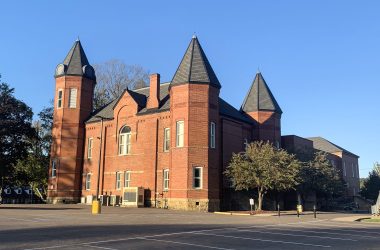Luke 15:11-24
The parable before us is one of three parables which Jesus spoke to an audience of publicans and sinners (v. 1). While all have sinned and come short, publicans were viewed as sinning far more and falling far, far shorter than most. They were commonly regarded as greedy individuals who preyed upon their fellow countrymen by exacting more taxes than required. There were reasons why that the sinners who sat to eat with Jesus were known as sinners. Their sins were not secret. Their offenses were common knowledge. The audience to which Jesus spoke had been tried in the Court of Public Opinion, found guilty, and were to be ostracized.
This audience readily relates to the younger son. The younger son insisted upon taking his inheritance before it was his due. His actions speak loudly. He wished that his father were dead so that he might claim his inheritance. His regard was for himself alone. The publicans collected taxes which were not their due. They were sinners who lacked regard for both God and man.
The father was under no obligation to grant the younger son’s request, but grant it, he did.
What the younger son did with his inheritance is common knowledge. He wasted it on riotous living. If one were to conduct approval rating polls on behaviors, the younger son and the audience of publicans and sinners to which Jesus spoke would finish near the bottom.
Approval polls were not of concern to the younger son. If approval polls were to govern behavior, he would not have engaged in riotous living. What mattered to the younger son was that his inheritance was gone and he had become destitute and could do little to remedy his plight. He was far from home and in need of food and shelter. In desperation, he chose to join himself to a citizen of that country. His employer required him to feed his swine. Swine are not fussy about what they eat. They are living waste disposal systems. The younger son found himself in a situation where it was forced to eat the same food which he gave the swine.
After an unspecified duration of this wretched existence, the younger son came to his senses. He realized that his present condition did not have to be. The servants in his father’s house lived in luxury in comparison to his present estate. The young man’s thinking is illustrated in verses 18 and 19. He would return to his father and bear his heart to him. He would confess his transgressions and ask if he could become a servant to him. His plan was simple: Appeal to the mercy of his father, trusting that his father would employ him as a servant.
The reunion with his father did not go as the younger son expected. His father saw him coming “when he was yet a great way off” and ran to him and embraced him. The father whom the son had deserted warmly received him. His father ordered his servants to place the best robe upon him, a ring upon his hand, and shoes upon his feet. Then his father ordered a great feast of celebration and declared that his son who was dead is alive again and he that was lost is found.
The father which received him was the same person from whom the son had departed. When the younger son left home, he left a father that he did not really know. His father possessed unconditional love. Unconditional love was foreign to the younger son. Unconditional love is foreign to all who seek to live life without regard for God or fellow men. The younger son left home not caring that he had sinned against heaven and against his father. The younger son did not return home with the expectation that he would be honored as a lost son. He returned home with a contrite heart, fully aware that he had sinned against heaven and his father. He could not undo his past. He could only return to his father and beg for undeserved mercy.
Both the publicans and the sinners to whom Jesus spoke had conducted their lives without regard for God or fellow men. The publicans, like the younger son who had left home, did not know the God who freely gives His love to all who come to Him with a contrite heart. To receive the unconditional love of which he had no knowledge, the younger son had to come to his senses and return to his father.
The God which God the Son revealed to the publicans is like the father who waits and looks far off for those who have strayed to return. The younger son discovered a father that he did not know. He discovered that forgiveness awaited him. The father never ceased in loving his son. Jesus did not condemn the publicans. Jesus came to seek and to save.
New Testament believers have received God’s undeserved love because we, like the younger son, have called out to our Father for unmerited mercy. The open arms of forgiveness of the Father were waiting and eager to embrace us.
Let us declare His love of Him who gave His only begotten to die for us, the unworthy.



